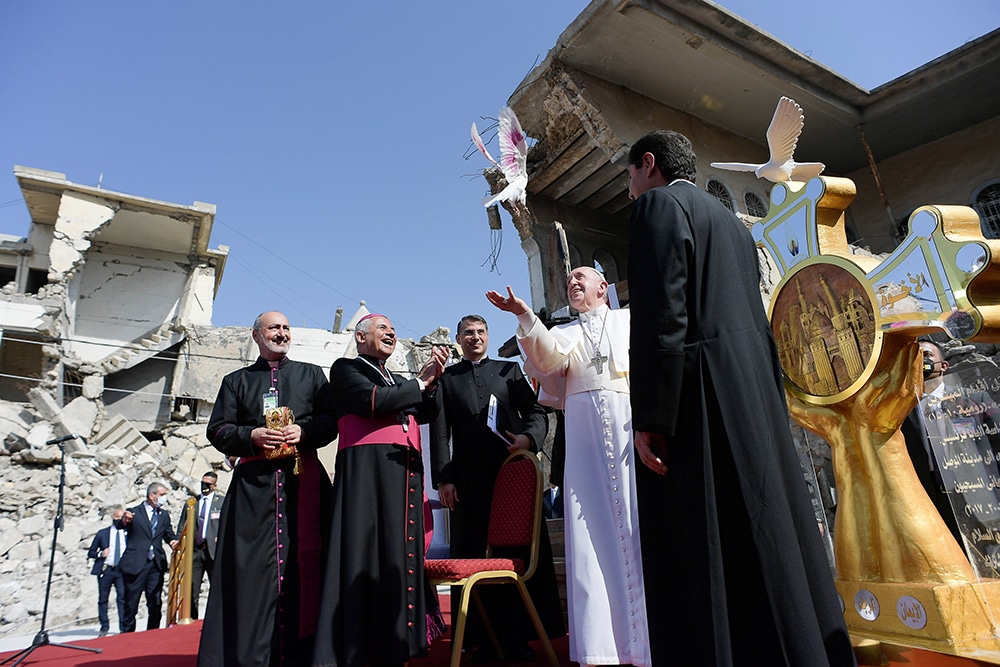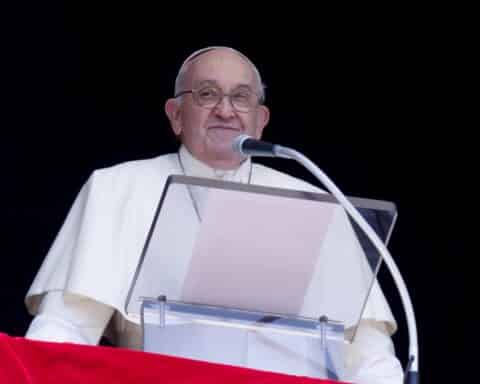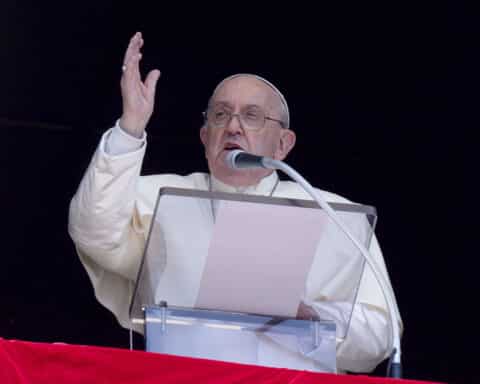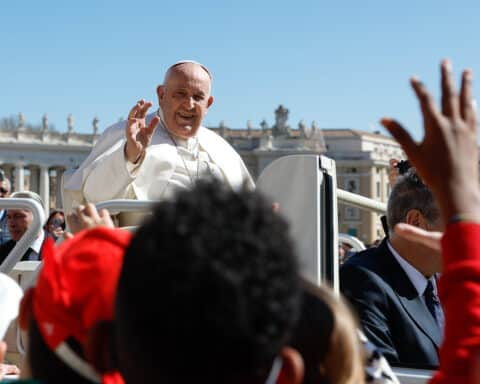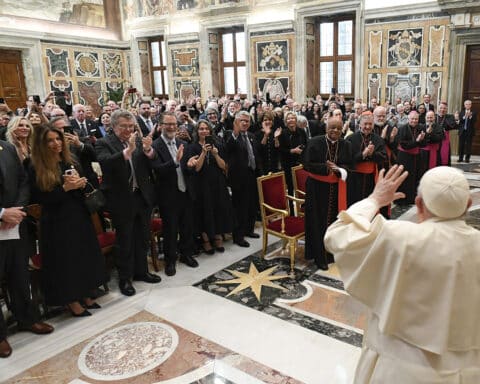It was one year ago this month when Pope Francis held a monstrance high in a deserted St. Peter’s Square, blessing a Church and a world reeling from an unknown virus, and the sickness and death that it carried in its invisible wake.
Almost 12 months removed from that stark scene, as vaccines are dispensed and the world begins to glimpse the light at the end of this long, dark pandemic-shaped tunnel, the Bishop of Rome is showing us how to move forward. During his four-day historic visit to Iraq — the first visit of a Roman pontiff to the country — Pope Francis was Pope Francis at his best: reaching out to the peripheries, encountering others, advocating for and advancing dialogue, and calling for peace. The “Pope of the People” was back on the job, and we needed him to be there — maybe even more than we realized.
It’s been one long year. We have experienced death and sorrow, illness and pain, anxiety and a multitude of struggles. We’ve been trudging through the days, battling — sometimes unconsciously — the everyday weight and stress of the unknown. Focused on ourselves and our tasks at hand, we have become skilled at tuning out the world beyond the security and comfort of our self-created bubbles.
| How to help |
|---|
| Our Sunday Visitor provides a list of five organizations that are working to support persecuted Christians around the world, including the Middle East. For those able to help our brothers and sisters, get more information here. |
But the world is out there, and Pope Francis is beckoning us to take notice once again, for the good of all. For centuries, Christians in the Middle East have faced persecution and death for their beliefs — most recently, in Iraq — in horrific ways at the hands of the Islamic State. Since the beginning of the U.S.-led Iraq war in 2003, the vast majority of Iraq’s once-sizable Christian minority have been killed or have fled, and very few of those who fled have returned. Only a few years ago, it seemed unfathomable that a papal visit could or would take place in that part of the world. And yet Pope Francis was determined that it would be so. And through his determination, he brought the eyes of the world back to a land desperately in need of attention, prayer and support.
“Today … we reaffirm our conviction that fraternity is more durable than fratricide, that hope is more powerful than hatred, that peace [is] more powerful than war,” the pope said during his visit to the war-torn city of Mosul, once a thriving, multicultural metropolis that is now in the process of rebuilding.
As he traveled from Baghdad to Najaf to Ur to Erbil to Mosul to Qaraqosh, Pope Francis brought with him this message of fraternity so persuasively outlined in his recent encyclical Fratelli Tutti (“On Fraternity and Social Friendship”). He reminded all who listened of our common responsibility to be brothers and sisters to one another.
While his visit succeeded in drawing our attention, it now demands our action. Speaking at the birthplace of Abraham in Ur, Pope Francis said that as Abraham went forth from his homeland, we, too, are called to go outward.
“On our own journey, we are called to leave behind those ties and attachments that, by keeping us enclosed in our own groups, prevent us from welcoming God’s boundless love and from seeing others as our brothers and sisters,” he said. “We need to move beyond ourselves, because we need one another. The pandemic has made us realize that ‘no one is saved alone.'”
Through his visit, Pope Francis has reminded the international community of the critical need to find ways to work toward that goal of fraternity in the Middle East. Our Christian brothers and sisters — and indeed of all our brothers and sisters in that region, joined together by our common bond of humanity — need our financial and spiritual support as they rebuild their homes.
In our own communities, too, Pope Francis is inviting us to reconnect with those in need, and perhaps to consider in a special way anyone we may have overlooked while focused on our own particular problems or struggles.
Quoting from Fratelli Tutti, Pope Francis said, “The temptation to withdraw from others is never-ending, yet at the same time we know that ‘the notion of “every man for himself” will rapidly degenerate into a free-for-all that would prove worse than any pandemic.'”
As we inch closer to a post-pandemic reality, Pope Francis has modeled for us the way forward. May we embrace it with the same determination, commitment and love that he exemplified in Iraq.
Our Sunday Visitor Editorial Board: Gretchen R. Crowe, Scott P. Richert, Scott Warden, York Young

